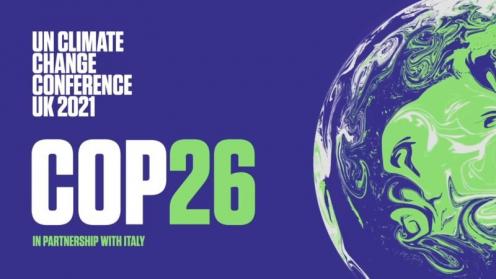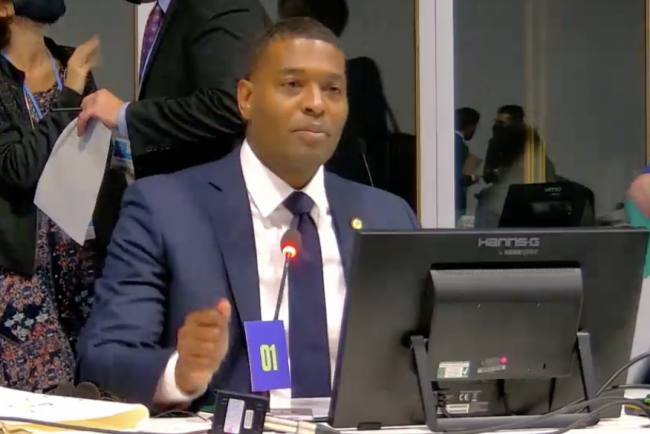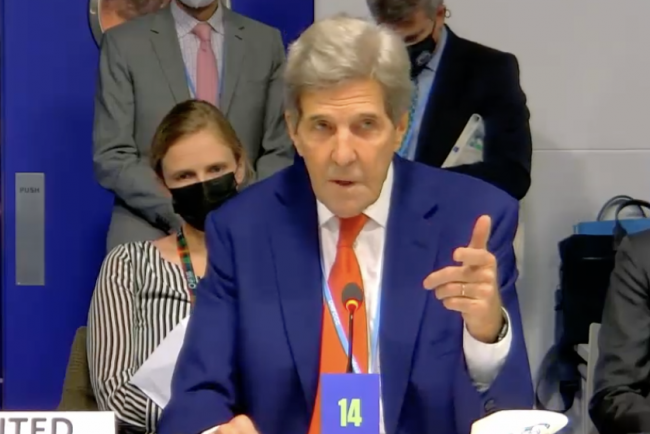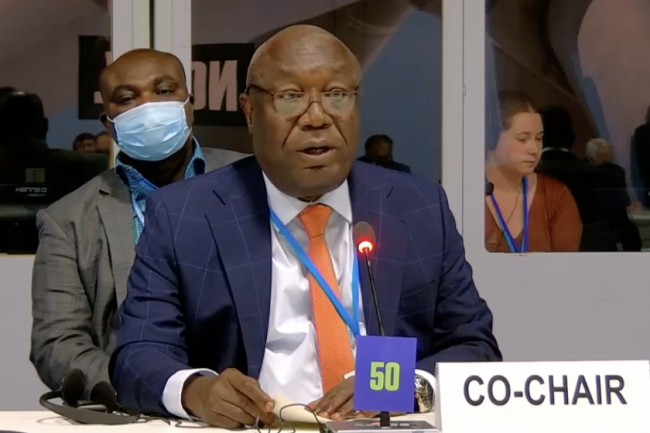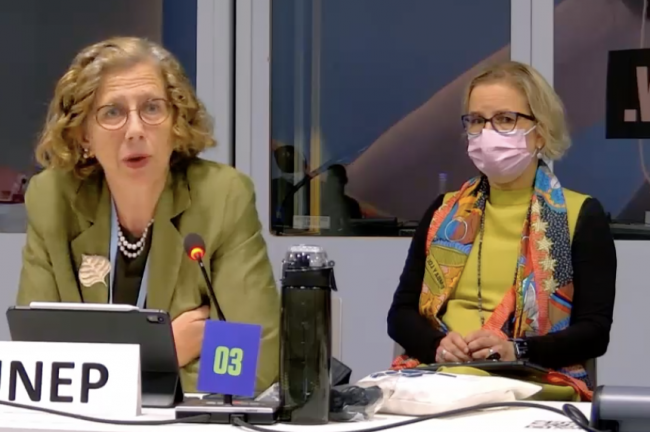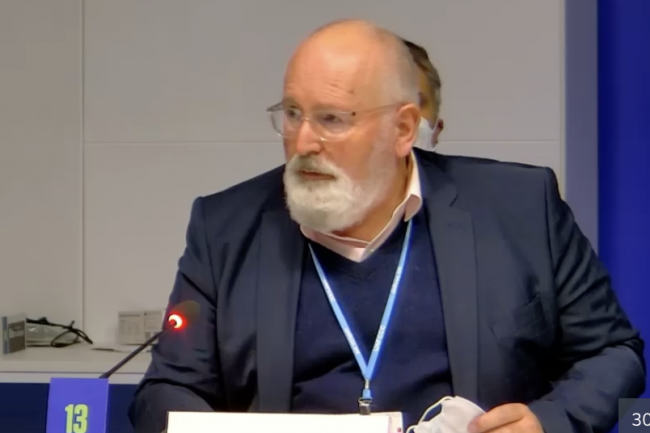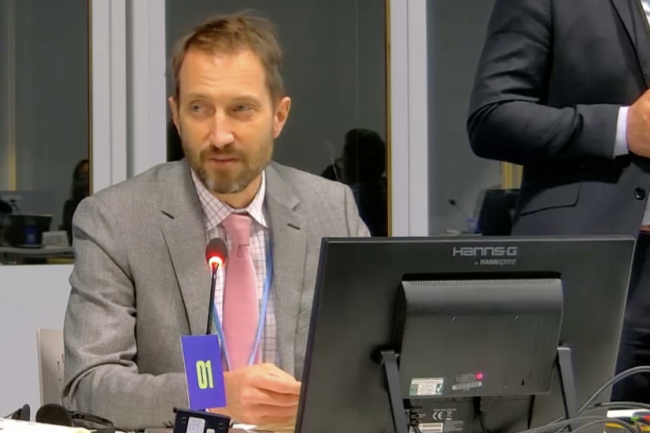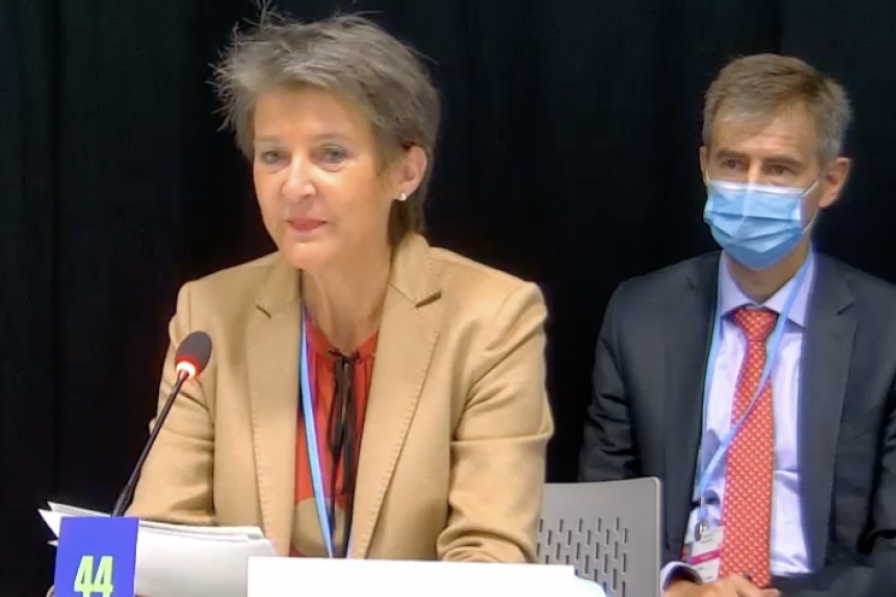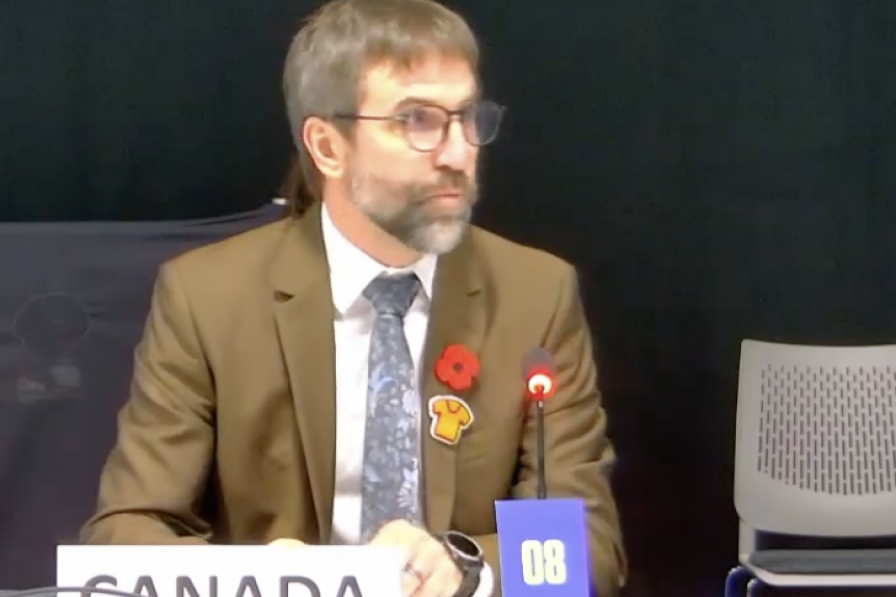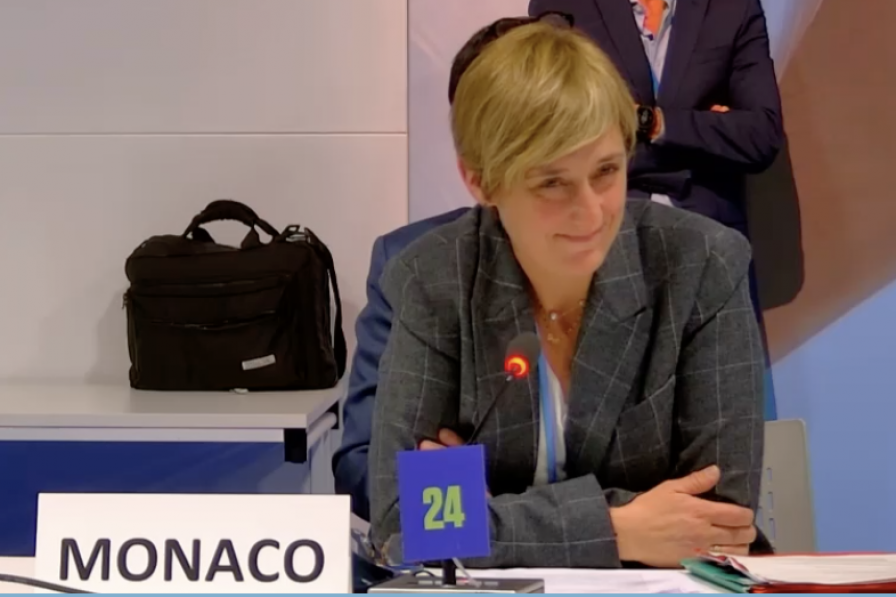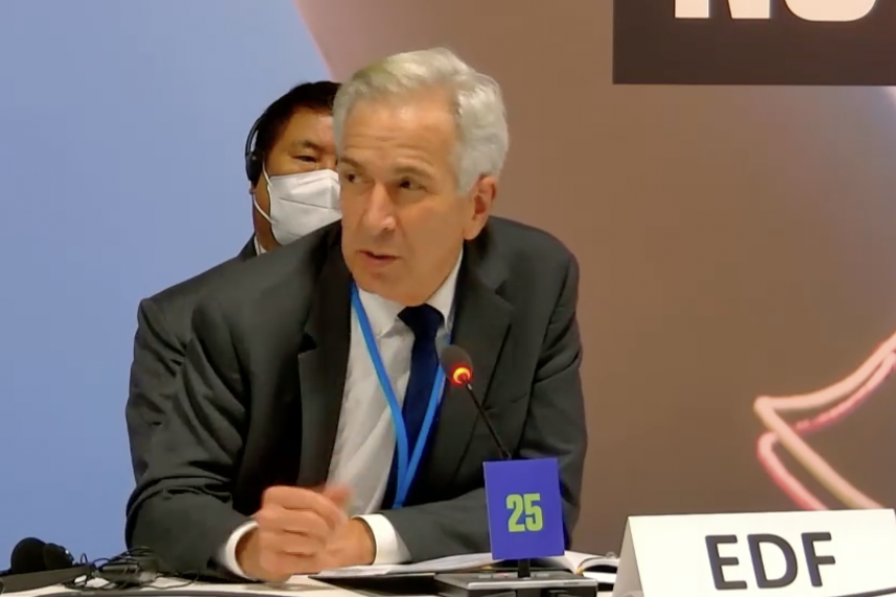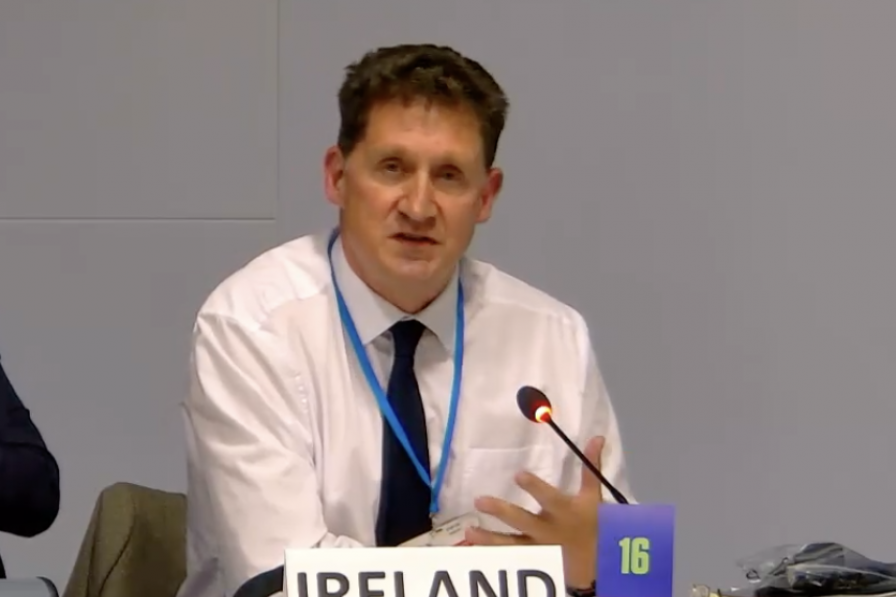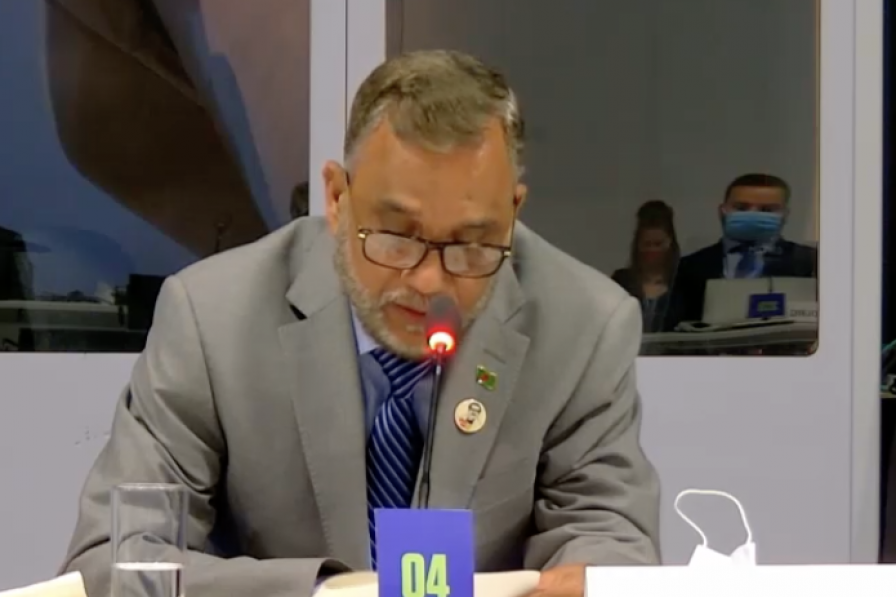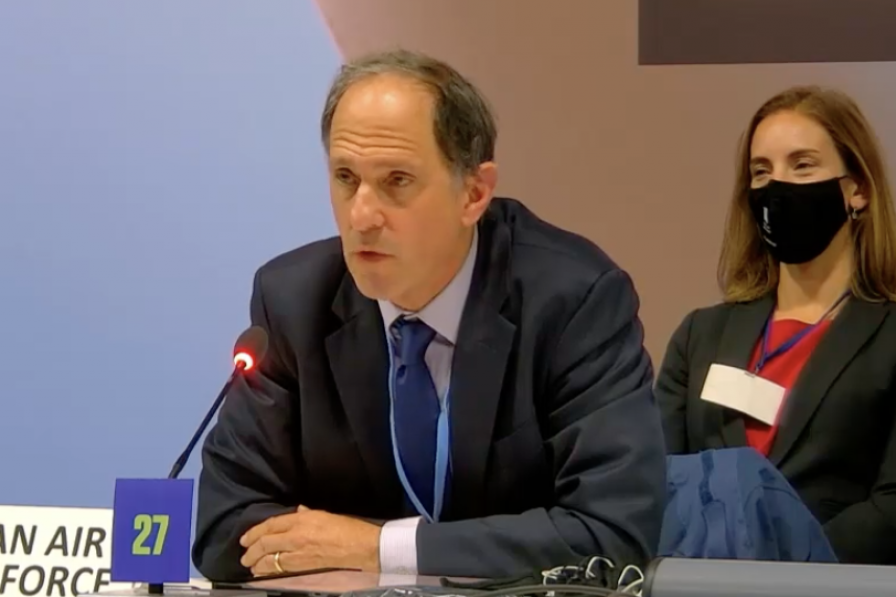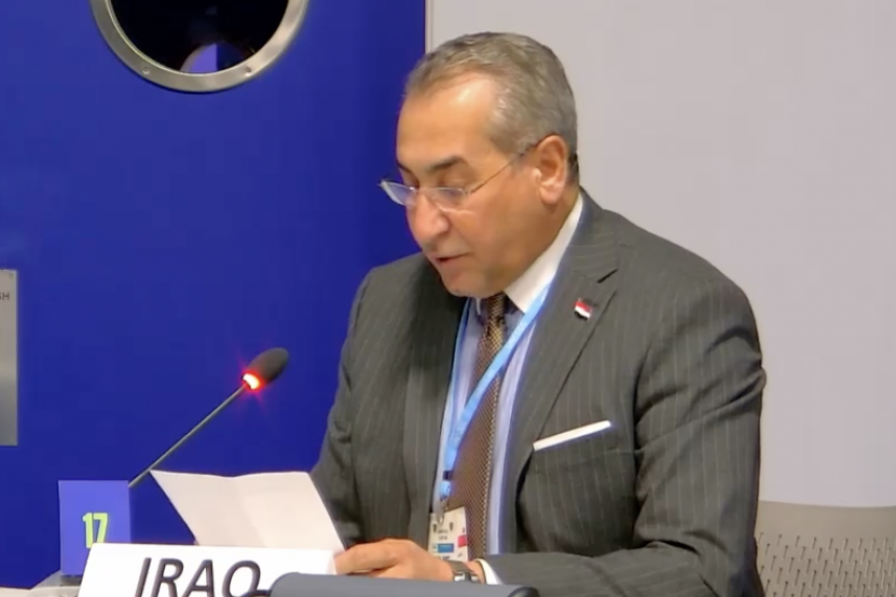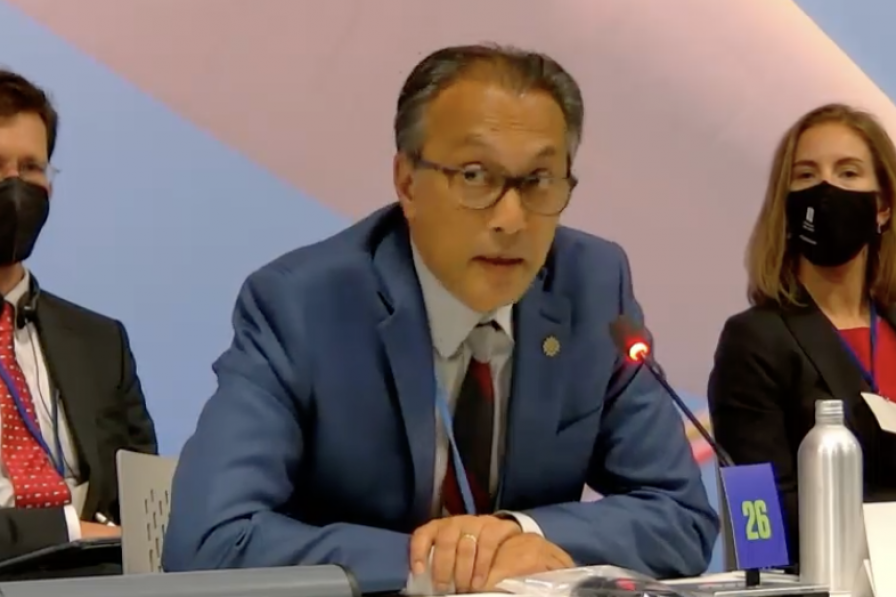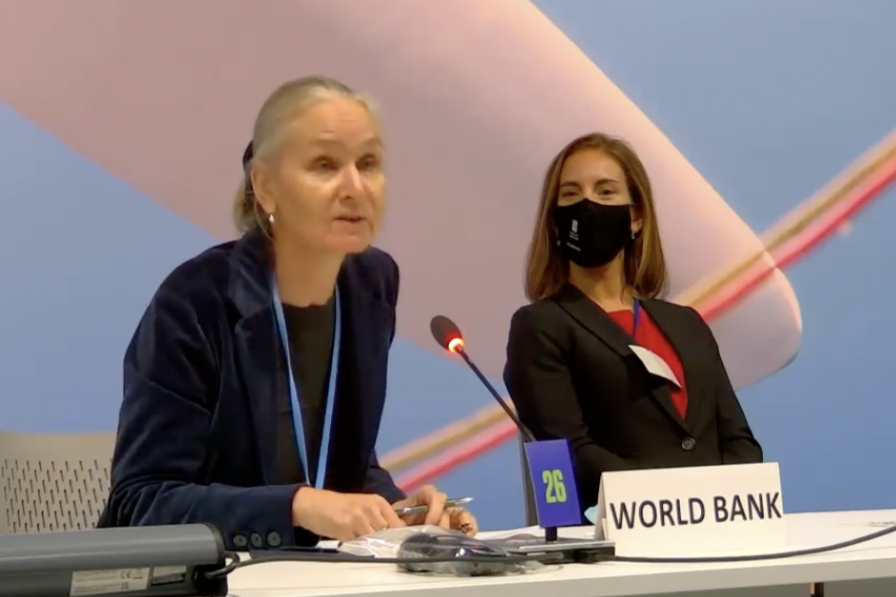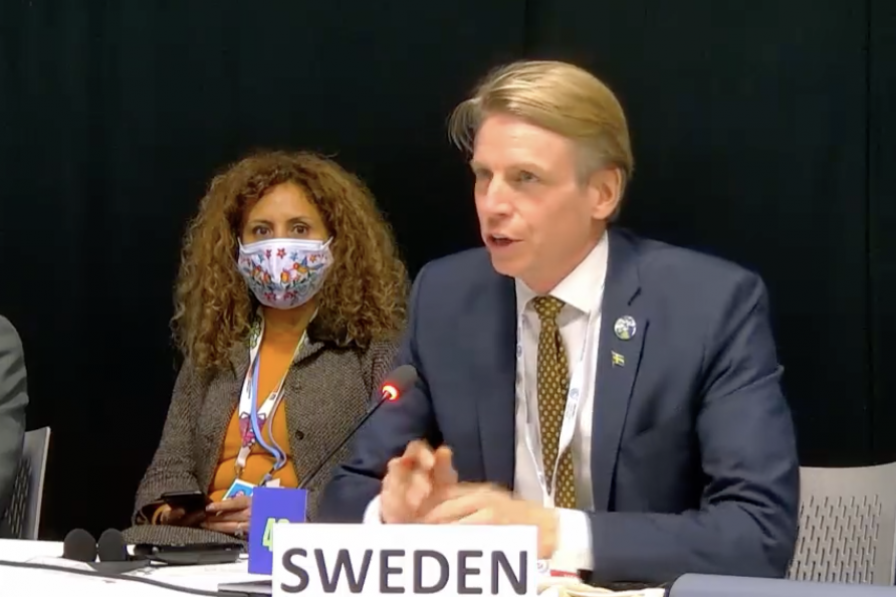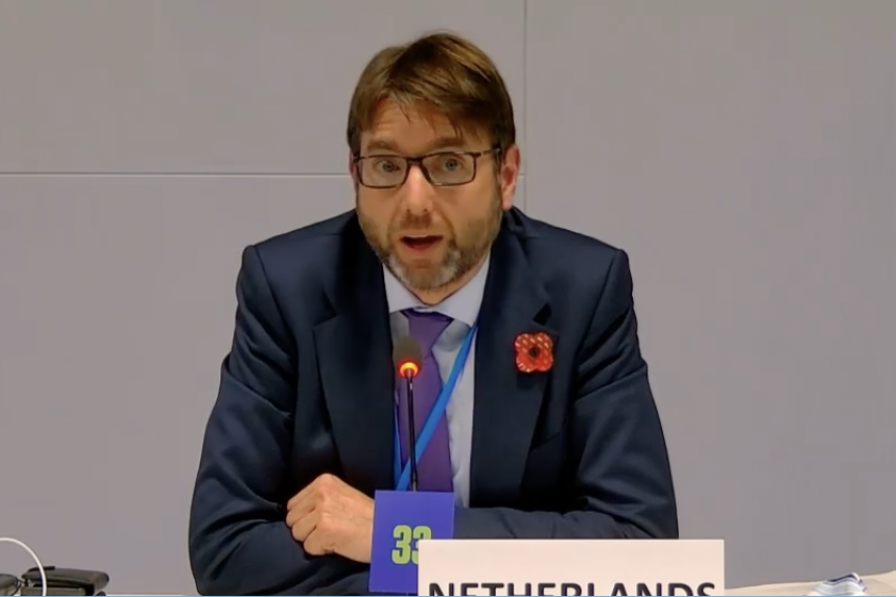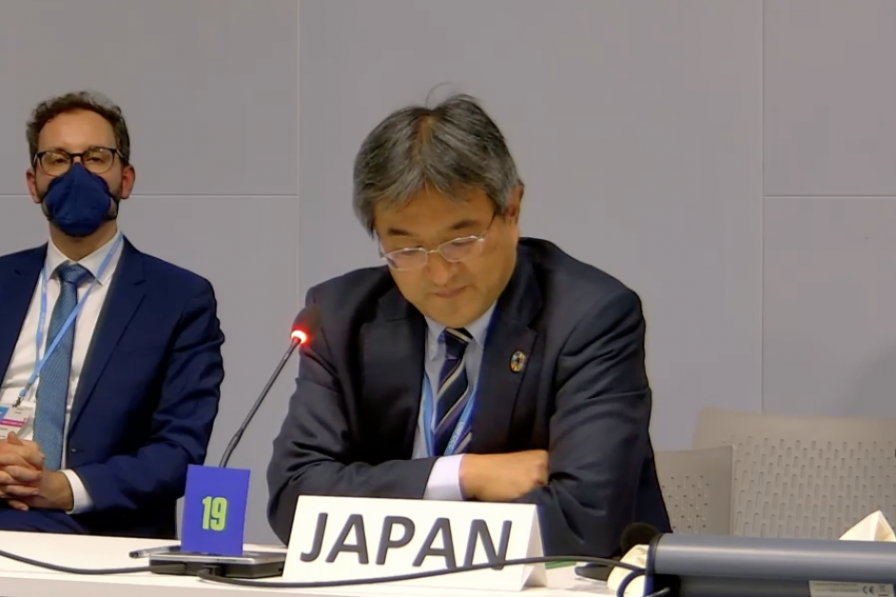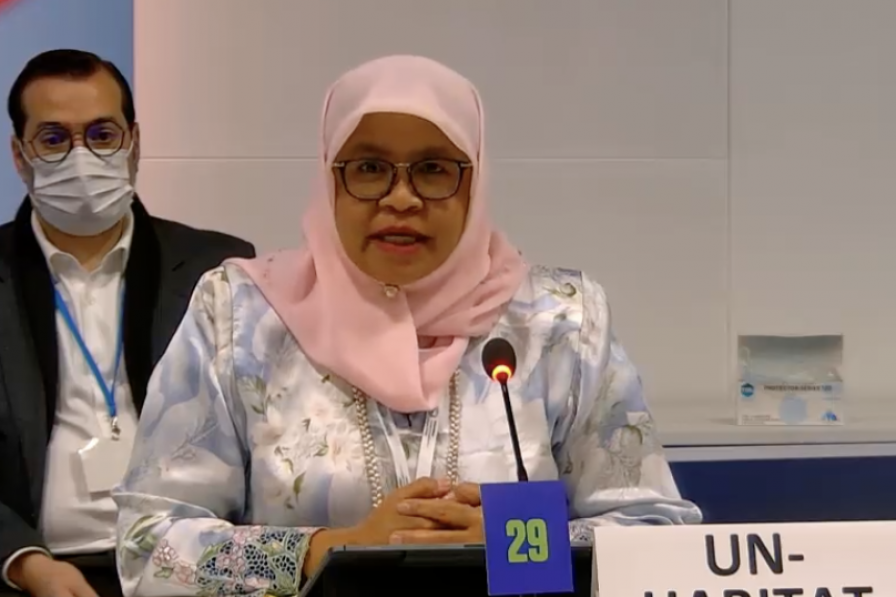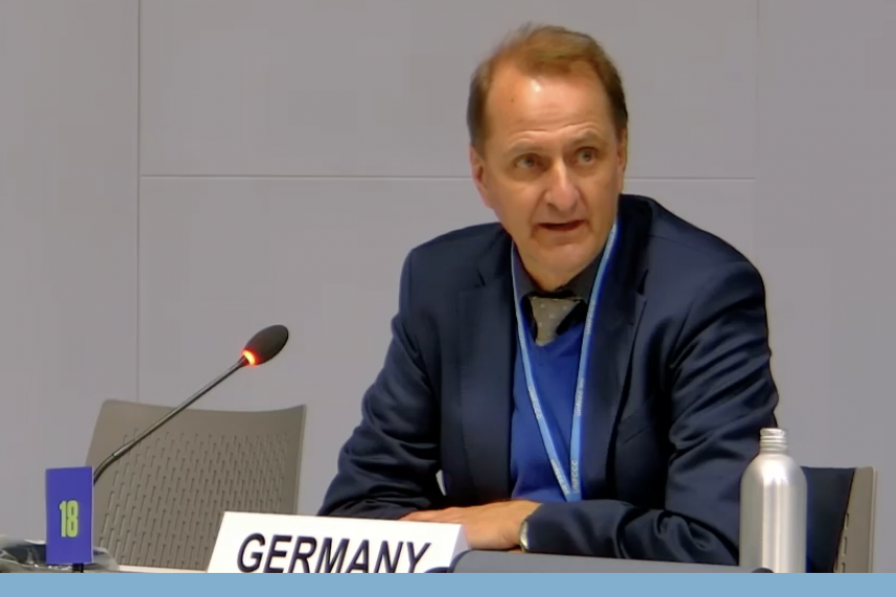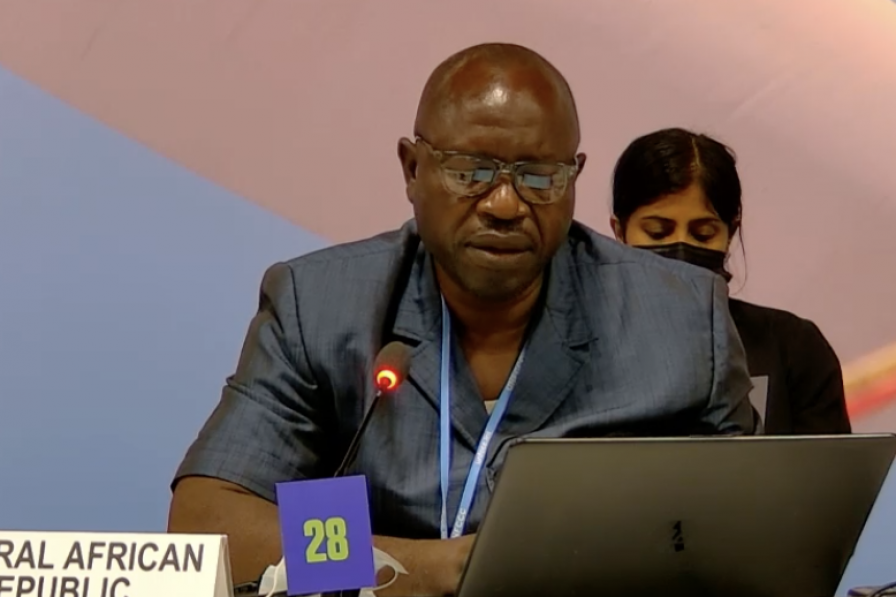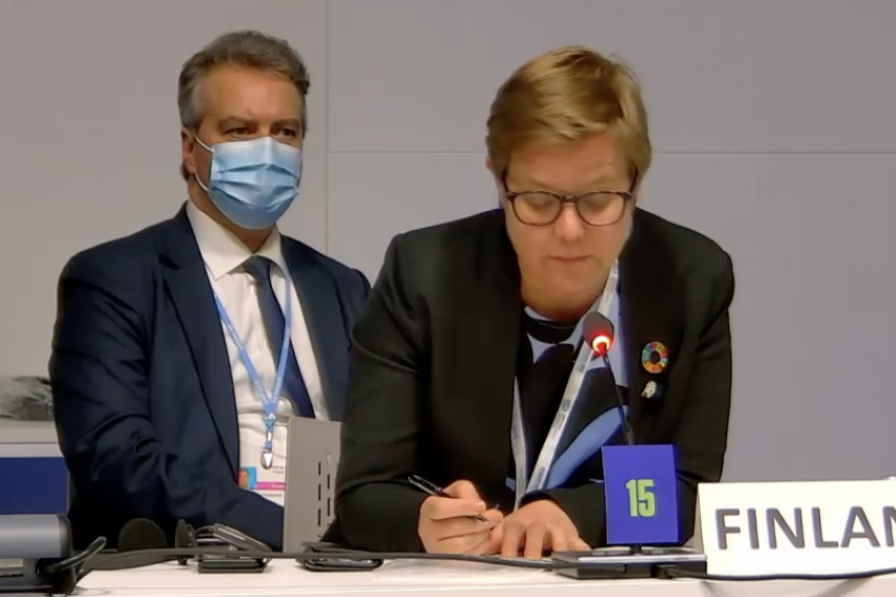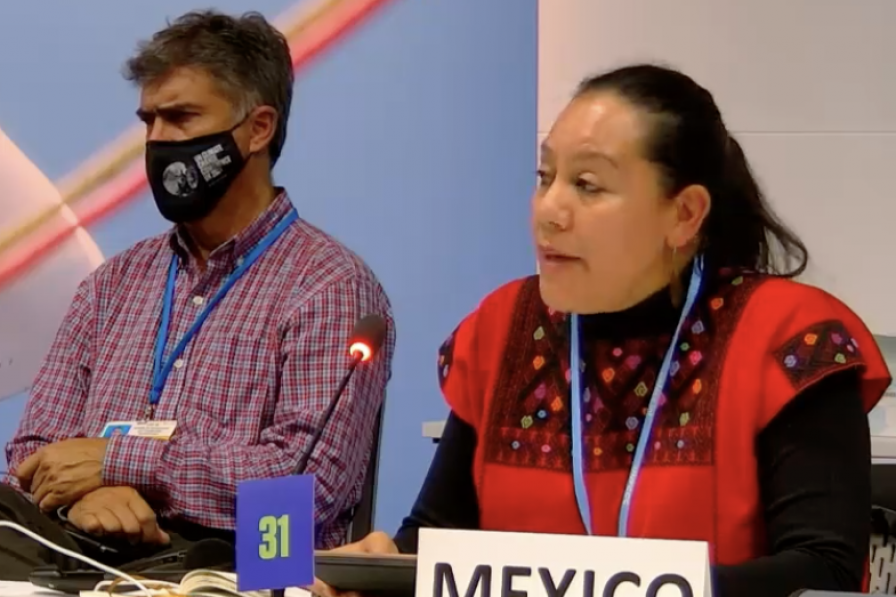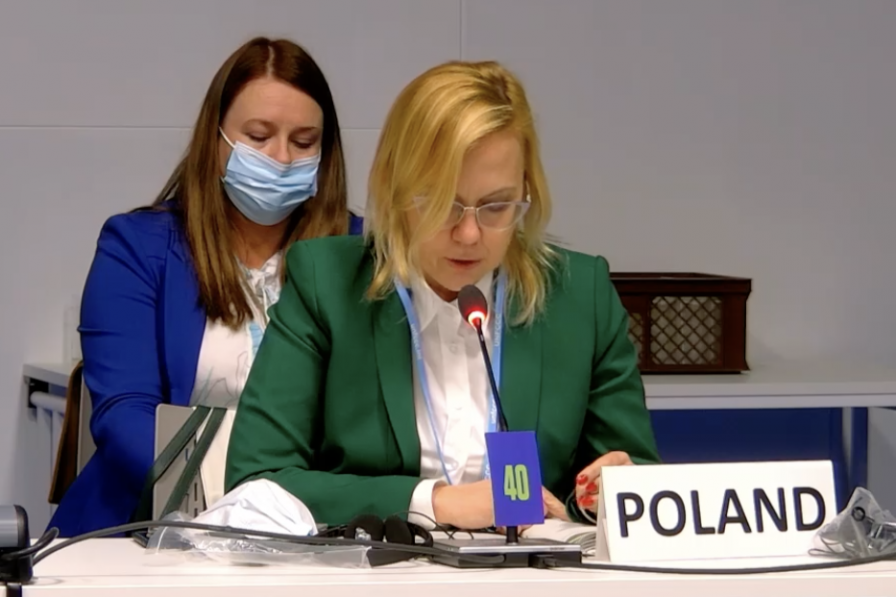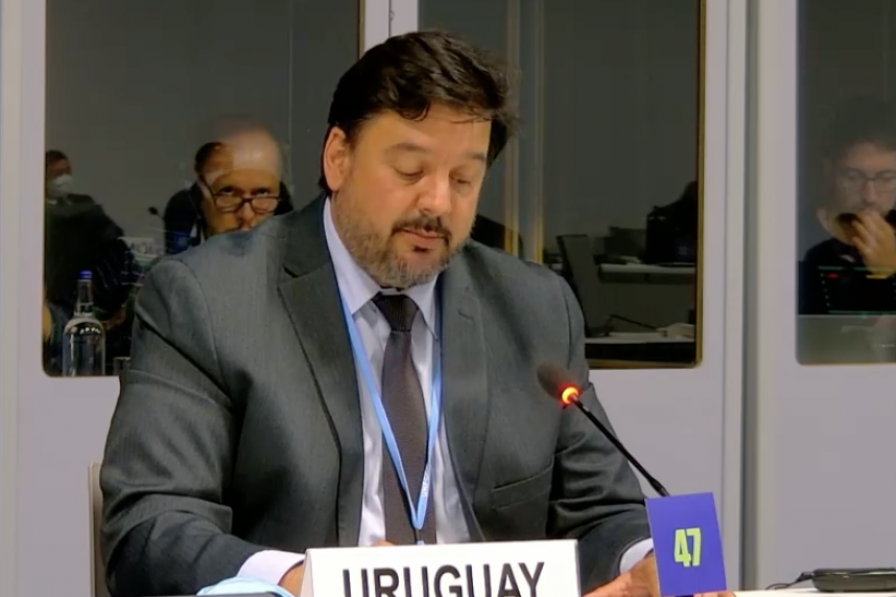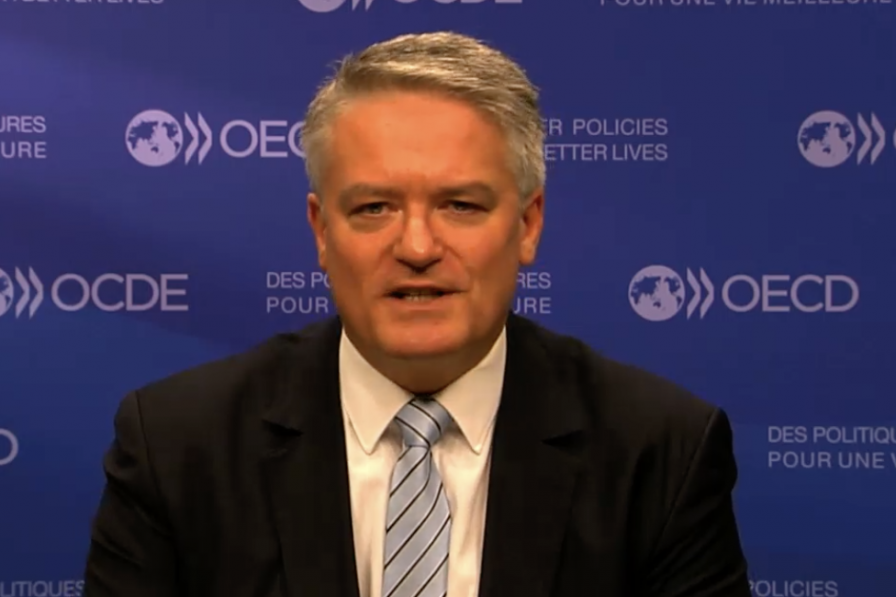Climate and Clean Air Ministerial
Short-lived climate pollutants (SLCPs), such as black carbon, methane, tropospheric ozone, and hydrofluorocarbons (HFCs), are powerful climate forcers, collectively responsible for up to 45% of current global warming. SLCP action, therefore, presents an opportunity for quick action to address global warming over the near term. Certain SLCPs are also dangerous air pollutants; thus, reducing these pollutants will have significant co-benefits for human health and the environment. The Climate and Clean Air Coalition to Reduce SLCPs (CCAC) helps partners and stakeholders create policies and practices that will deliver substantial reductions in SLCPs. The Climate and Clean Air Ministerial serves as the CCAC’s highest level political body to advance the Coalition’s work.
This Ministerial, which met on the sidelines of COP 26, brought together Ministers and other leaders to discuss stepping up ambition and action to address climate and clean air issues, with a special focus on methane. During the meeting, Ministers endorsed the CCAC 2030 Strategy, which sets out the CCAC’s mission to act on SLCPs to slow near-term temperature change and also deliver public health, food security, environmental, and economic benefits. The Ministerial also included pledges to the CCAC Trust Fund.
Opening
This segment was chaired by Michael S. Regan, Administrator, United States Environmental Protection Agency (EPA). He said the EPA is acting to reduce methane emissions, inter alia¸ through proposed New Source Performance Standards, which are expected to reduce 41 million tonnes of methane emissions by 2035.
John Kerry, Special Presidential Envoy for Climate, US, underlined that methane emissions contribute to about half of the global warming to date. Therefore, he said addressing the issue is important and long overdue. He highlighted the Global Methane Pledge, noting it will not only reduce emissions but also save lives.
Kwaku Afriyie, Minister of the Environment, Science, Technology and Innovation, Ghana, urged both his country, and the entire African region, to step up action on reducing methane emissions. Noting the CCAC is entering a new implementation phase guided by the 2030 Strategy, he called for maximum support including financial, technological, and capacity-building support.
Inger Andersen, Executive Director, United Nations Environment Programme (UNEP), underlined that the CCAC’s new 2030 Strategy shows that action on SLCPs can achieve fast results, avoid tipping points, and create multiple benefits. She welcomed the Global Methane Pledge and urged CCAC partners to play their part through the newly launched CCAC Methane Flagship Programme, which will provide capacity support to reduce methane in the fossil fuels, waste, and agriculture sectors.
Frans Timmermans, Vice-President, European Commission, endorsed the Global Methane Pledge. He highlighted that the EU agreed to address methane in the oil and gas and coal sectors, with plans to also include the agriculture sector. He said the EU will be working along supply chains to reduce emissions, noting that most of the emissions associated with EU consumption happen outside the EU, in producer countries.
Pledges to the CCAC Trust Fund
The US announced a contribution of USD 3 million to the Trust Fund. Switzerland announced a contribution of USD 8.7 million over the next four years. Canada said it will contribute CAD 10 million over the next five years to the Trust Fund. Norway announced a total contribution of NOK 13.5 million for 2021-2022. Monaco pledged EUR 500,000 and the Flemish Government announced a contribution of EUR 245,000. Ireland pledged USD 2 million over the next five years, and Sweden announced its pledge of USD 350,000 in 2021.
Action on Methane
This segment was moderated by Rick Duke, Senior Director and White House Liaison for the US Special Presidential Envoy for Climate.
Global Methane Pledge
Hassan Musa, Permanent Secretary, Ministry of Environment, Nigeria, noted his country’s commitment to early action to reduce emissions from the oil and gas sector, with a 60% reduction target in fugitive methane emissions by 2031.
Hannah McKinnon, Sequoia Climate Fund, explained that she represents over 20 global philanthropies who have committed over USD 328 million to support work to address methane emissions. She said she looked forward to working with civil society, governments, researchers, and others to tackle methane emissions across all sectors.
Fred Krupp, President, Environmental Defense Fund, noted the Methane Pledge is a giant step forward and a “world changer.”
Agriculture Sector
Eamon Ryan, Minister for Climate Action, Communication Networks and Transport, Ireland, applauded the Global Methane Pledge and urged an immediate move to implementation, including through developing protocols that address land use and agriculture emissions. He stressed the CCAC is the perfect vehicle to take the Pledge and turn it into action.
Shahab Uddin, Minister of Environment, Forests and Climate Change, Bangladesh, outlined national actions to address methane emissions, including the Bangladesh National Action Plan for Reducing SLCPs which identifies 11 priority mitigation measures, five of which target primary methane emission sources.
Aniruddha Dasgupta, President and CEO, World Resources Institute (WRI), noted that the agriculture sector is an under-addressed opportunity to reduce methane emissions while improving livelihoods. He said WRI is collaborating with CCAC and other partners on new research focusing on mitigating agricultural methane emissions which will build on the WRI report Creating a Sustainable Food Future.
Fossil Fuels Sector
Jasim Abdulazeez Hammadi Al-Mohammedi, Deputy Minister of Environment, Iraq, reported his country is currently working to reduce greenhouse gas (GHG) emissions from all sectors, including energy. He emphasized that climate action should target emissions, not sources, and include all GHGs.
Armond Cohen, Executive Director and Co-Founder, Clean Air Task Force (CATF), noted the CCAC has a critical role to play in supporting and tracking implementation of the Global Methane Pledge, and looked forward to partnering with the CCAC in this regard.
Bernice Van Bronkhorst, Global Director of the Climate Change Group, World Bank, underscored that gas flaring is a significant contributor to climate change, and also causes harmful environmental impacts from un-combusted methane and black carbon emissions. She highlighted the World Bank’s gas flaring initiatives, including the Global Gas Flaring Reduction Partnership and Zero Routine Flaring by 2030 initiative.
Waste Sector
Per Bolund, Deputy Prime Minister and Minister for the Environment and Climate, Sweden, expressed support for the Global Methane Pledge, stressing that ambitious domestic actions go hand in hand with constructive international cooperation. He outlined Sweden’s efforts to address methane emissions in the waste sector.
Steven van Weyenberg, Minister for the Environment, the Netherlands, underlined the importance of the circular economy to reduce carbon dioxide and methane emissions, as well as for addressing the biodiversity crisis. He called for a systemic change through the pricing of scarce resources and reuse, and called for concrete action based on the Pledge.
HFCs in the Cooling Sector
Dirk Messner, President, German Environment Agency, called for deployment of technologies to replace energy inefficient HFC technologies and make the Kigali Amendment to the Montreal Protocol a success.
Yutaka Shoda, Vice-Minister for Global Environmental Affairs, Ministry of the Environment, Japan, underlined the importance of lifecycle management of HFC emissions in the cooling sector, including leakage and discharge. He expressed support for the Global Methane Pledge.
Jeem Lippwe, Deputy Permanent Representative of the Federated States of Micronesia to the UN, proposed that the CCAC undertake concrete steps to implement the Global Methane Pledge, such as undertaking regional methane assessments and creating working groups on methane mitigation.
Maimunah Mohd Sharif, Executive Director, UN-Habitat, said cities must be considered units of action by national governments for reducing SLCP and GHG emissions. She called for empowering cities to take comprehensive climate and clean air action including by giving them access to finance and results-oriented partnerships.
Endorsements of the 2030 Strategy
Mexico, Gabon, Finland, Poland, the Central African Republic, Panama, Peru, the World Meteorological Organization, Cote d’Ivoire, Uruguay, Colombia, Togo, and Mongolia endorsed the CCAC 2030 Strategy. The Institute for Advanced Sustainability Studies applauded the Global Methane Pledge and stressed work must also be undertaken on black carbon, ozone, and HFCs. Speaking via video message, Mathias Cormann, Secretary-General, Organisation for Economic Co-operation and Development, called for a global unity of purpose, and increasing ambition and effort around the world in a manner that is effective and fair.
Duke closed the Ministerial, stressing that the CCAC is known as a “coalition of the working” and urged all partners to heed the clarion call to act faster on methane
To receive free coverage of global environmental events delivered to your inbox, subscribe to the ENB Update newsletter.
